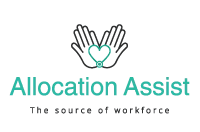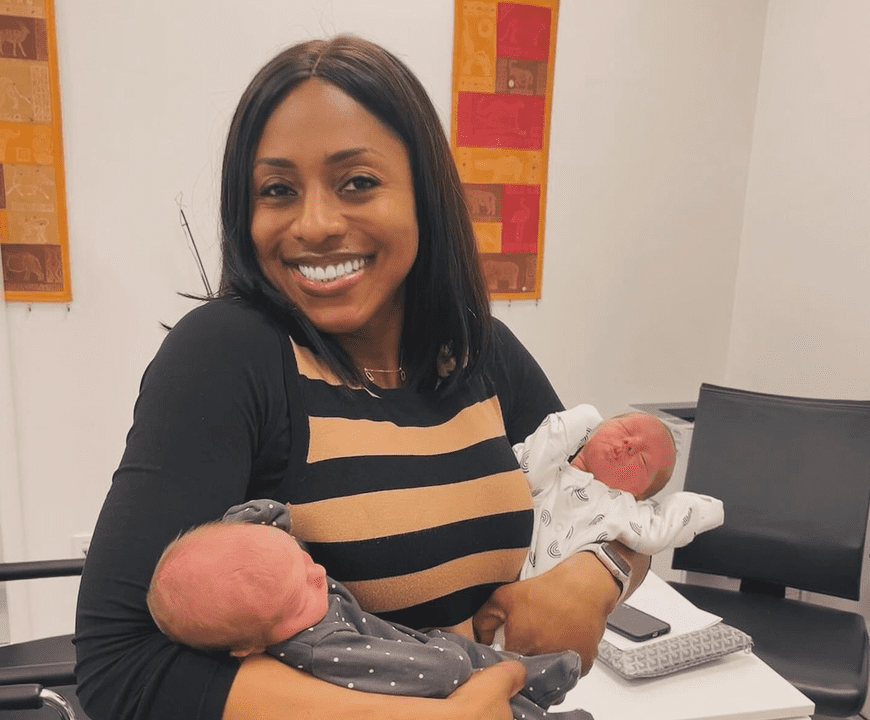Interview with Dr. Uloma Okwuosa, Consultant in Obstetrics and Gynecology at King’s College Hospital, London, UAE Explore the whole journey and all the experiences with Allocation Assist.
Dr. Uloma Okwuosa is an experienced and passionate consultant obstetrician and gynecologist. Dr. Uloma relocated to King’s College Hospital in Dubai from Oxford University Hospital in the UK, where she was clinical lead for acute and benign gynecology. Doctor Uloma Okwuosa, is a recognized educational supervisor with the Royal College of Obstetricians and Gynecologists (RCOG) and also a member of the British Society for Gynecological Endoscopists (BSGE) and the British and International Menopause Societies. Dr Uloma utilises her advanced specialist training and broad range of experience to support women throughout different stages of their lives.
At Allocation Assist, we like to keep in touch with our doctors, and we were excited to talk to Dr. Uloma about her career and experience of relocating to Dubai.
Dr. Uloma, thank you so much for making time in your busy schedule. Could you start by telling us a bit about yourself, your specialist training, and your experience?
Of course. I am a British Nigerian, and I completed my undergraduate medical degree from the University of Nigeria in 2001. After moving to the UK in 2003 and passing the UK exams, I gained experience working in Manchester, Surrey, and London before applying for Specialist Training in Obstetrics and Gynecology, which was very competitive. I was blessed to be accepted into the Oxford Deanery Specialist Registrar Training, where I was trained by some of the best obstetricians and laparoscopic surgeons.
The obstetric and gynecology department at Oxford University Hospital is one of the busiest in the country, performing around 7 to 8,000 deliveries a year. I received excellent training at Oxford University Hospital and the other hospitals in the department. I had the privilege of being exposed to a lot of complex cases in both obstetrics and gynaecology. Upon completing my specialist training (CCT), I immediately got a locum consultant job at Oxford University Hospital. Ten months later, I was interviewed and appointed for a substantive consultant post in the same hospital.
What are your special interests in obstetrics and gynecology?
I have diverse interests spanning early pregnancy, gynaecological ultrasound, advanced labour ward practice, and benign gynaecology. My expertise also includes uterine fibroids, ovarian cysts, polycystic ovarian syndrome, laparoscopic surgery, and hysteroscopic procedures for polyps and fibroids.
My training and experience enable me to effectively manage high-risk pregnancies with support from other specialists within the hospital. I noticed a gap in my training regarding menopause and HRT, which led me to complete further training in menopause care from the British Menopause Society.
I’ve never believed that one person can know it all, and I am always learning and updating my skills. I have chosen not to specialize excessively in either obstetrics or gynaecology. My goal is to assist as many women as possible with a broad spectrum of both straightforward and complex conditions. This also allows me to support the same woman through different stages in her life.
How did you decide to relocate to the UAE?
I first opened my mind to the idea of moving to Dubai in 2017, but it took me a while to make the leap. I had visited Dubai before. One of my colleagues had relocated there to work and had a great experience. In December 2020, I spent Christmas in Dubai with my sister, who had traveled from Nigeria, as the UAE was a travel corridor at that time during the COVID-19 pandemic. We had so much fun, and I have noticed so much growth and diversity in Dubai since I first visited. This led me to start thinking more seriously about relocating. I was approached by Emilie Davies at Allocation Assist; we communicated on and off for some time before I finally decided to follow her advice and make the move!
The working environment in the NHS was becoming more stressful and challenging, especially with the waiting lists and backlog from the COVID pandemic. I was excited by the vibrancy and innovation I witnessed in Dubai. I wanted to be part of a system that is in continuous growth and development.
About Allocation Assist Team
The team at Allocation Assist was so supportive. They consulted me, helped me with the licensing process, and then introduced me to more than 10 hospitals in the UAE. It was not long after that I received a call to say that I was shortlisted for an interview with King’s College Hospital, UAE.
I was very happy to be offered the post, as King’s College is one of the best hospitals in Dubai and has a direct collaboration with King’s College Hospital in London. However, it was not easy leaving my colleagues and responsibilities in the UK. Initially, I negotiated a sabbatical from my post in the UK, but I soon realized that I wanted to stay in Dubai for the long term and gave in my notice 3 months before the end of my sabbatical.
What is your experience working in Dubai?
I am very happy here, and now I wonder why it took me so long to make the move! Of course, moving to a new country and system comes with challenges, such as getting used to the medical insurance system here. In the first few months, it took time to build up my patient base. The hospital has a very good marketing and social media team, and I did have experience in private practice in the UK for several years, which has been helpful.
All of my colleagues, including the doctors, nurses, and other team members, have been very supportive. We are part of a real community in the hospital, and I feel respected, valued, and appreciated. I am very busy, but my work is immensely rewarding. In this system, I have greater autonomy, am able to get to know my patients well, and build relationships.
Have you experienced any differences in your obstetrics and gynecology practice between the UK and the UAE?
Yes. In the UK, patients often have to wait for surgeries, but here, treatment can usually be done very quickly. I have learned how to provide all the necessary details and advocate for my patients when applying for pre-approvals from insurance companies. In the UK, we had highly skilled anaesthetists giving epidurals, but here we are also able to offer ‘walking epidurals’ that allow women to move around during labour even with an epidural.
In the UK, it is common for women with low-risk pregnancies and deliveries to give birth in midwife-led units or birthing centres. While the majority of deliveries can be safely managed by midwives, obstetricians have to be called if there is a complication. At King’s College Hospital, we have highly experienced midwives who work as part of an obstetrician-led team. We find that this model works well, as each team member can effectively use their skills, and an obstetrician is always immediately available in case of complications.
I have been able to utilise my skills and experience managing high-risk pregnancies here in Dubai. I can easily refer patients to other specialists in King’s College Hospital, such as fetal medicine, endocrinology, and cardiology. Here, there is more choice of healthcare providers, but I am able to spend more time with my patients, which helps with communication and building rapport. I feel that I am able to offer better continuity of care and build stronger relationships with patients and their families.
How does continuity of care benefit your patients?
Building trust and rapport is important, as we see women at some of the highest and lowest points in their lives, sharing both their joys and sorrows. I am able to share their vulnerability and offer encouragement, letting them know that they are not alone. For example, I was able to support one of my patients through multiple miscarriages.
When she came back pregnant again for an antenatal scan, I was able to confirm that she was carrying twins and then care for her throughout her pregnancy, all the way through to the delivery of 2 healthy babies. She brought the babies back in to see me on Valentines Day, which was such a joy! In truth, I didn’t do anything magical for this patient except support her throughout. In obstetrics, especially, the seemingly little things are very important.
The experience during childbirth shapes how women feel for years to come. Another patient came to me in the latter part of her pregnancy, as she wanted to have a natural delivery in a birthing pool. She had had a c-section with her first child, and her previous obstetrician felt the birthing pool was going a bit too far. However, we were able to allow her to give birth in the pool by putting appropriate monitoring and other safety measures in place. She felt so happy and empowered.
Can you tell us the book that you are writing and any other plans for the future?
Yes. I am writing a book on common gynecological challenges that women face, using simplified language and talking about available solutions. So, the book is called ‘From Menarche to Menopause’ and I hope it will be a useful and informative guide. I have been very busy with work in the last few months, but I hope to be able to finish it and get it out soon.
I plan to stay in Dubai for the long term but I also have a desire to travel more. In previous years, I used to travel to my home country, Nigeria, to work, see patients, operate, consult, etc. I want to do this again when I am able to make the time and expand to do more in rural communities to give back to people in Nigeria, other African countries, and wherever else there is a need.
What advice would you give to other consultants who are thinking about relocating to the UAE?
Just do it! I would recommend talking to doctors who have been working here for a while to find out about their experiences. Personally, I have no regrets. I am very busy here, but it is less stressful and I am enjoying my life. I have more autonomy and feel valued and appreciated. The culture is also very respectful. Dubai is a great place with a diverse and vibrant population that has come here from all over the world. I feel that living here, I have changed and grown as a person and in my outlook on life.



